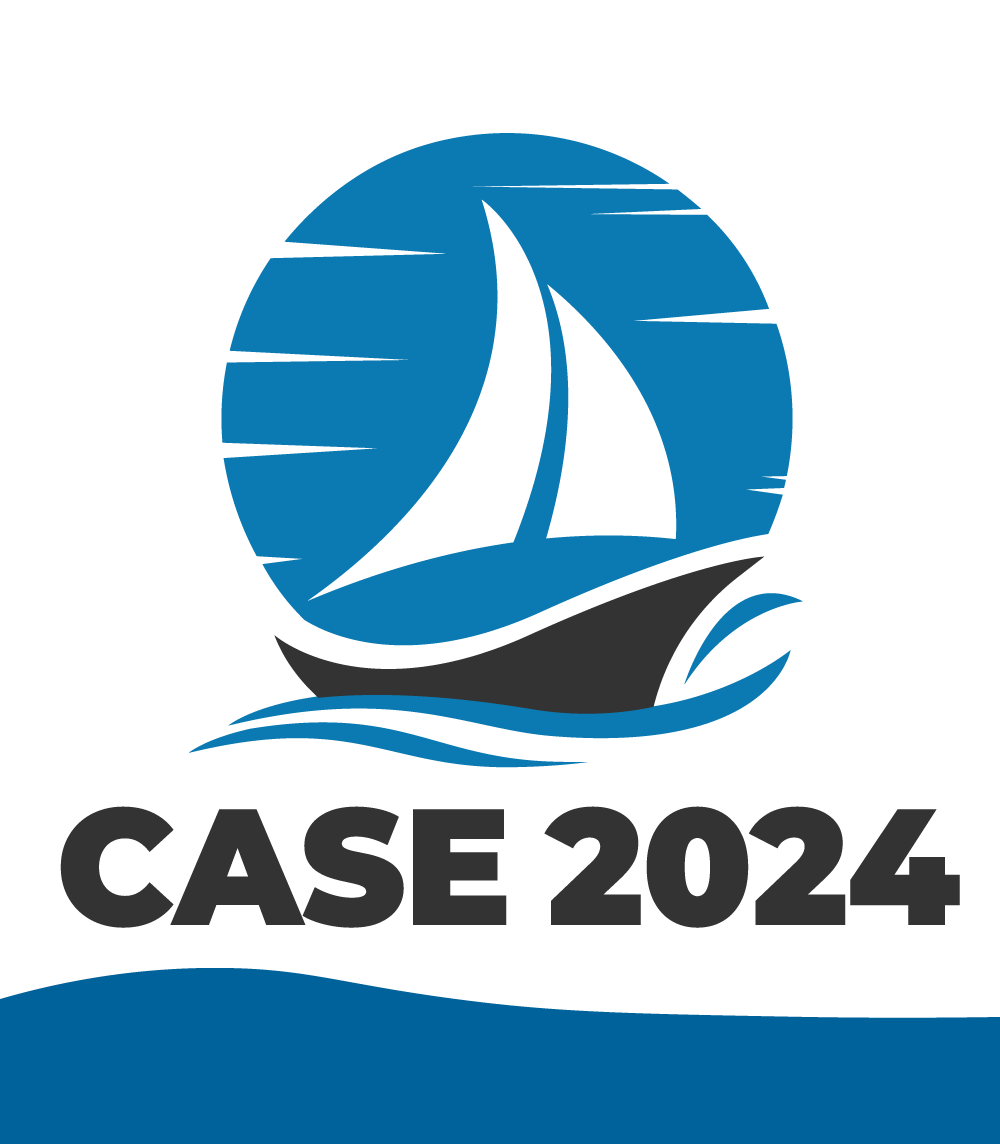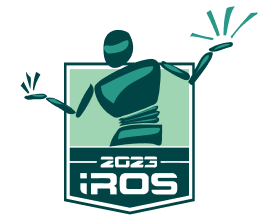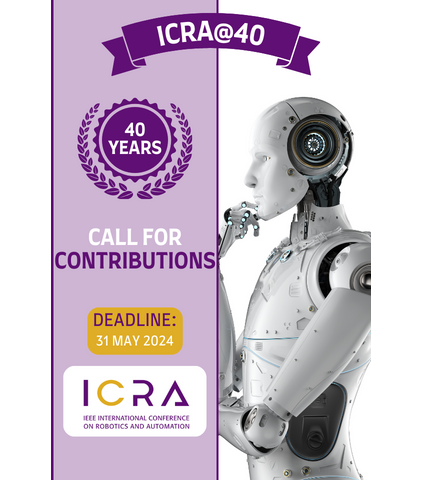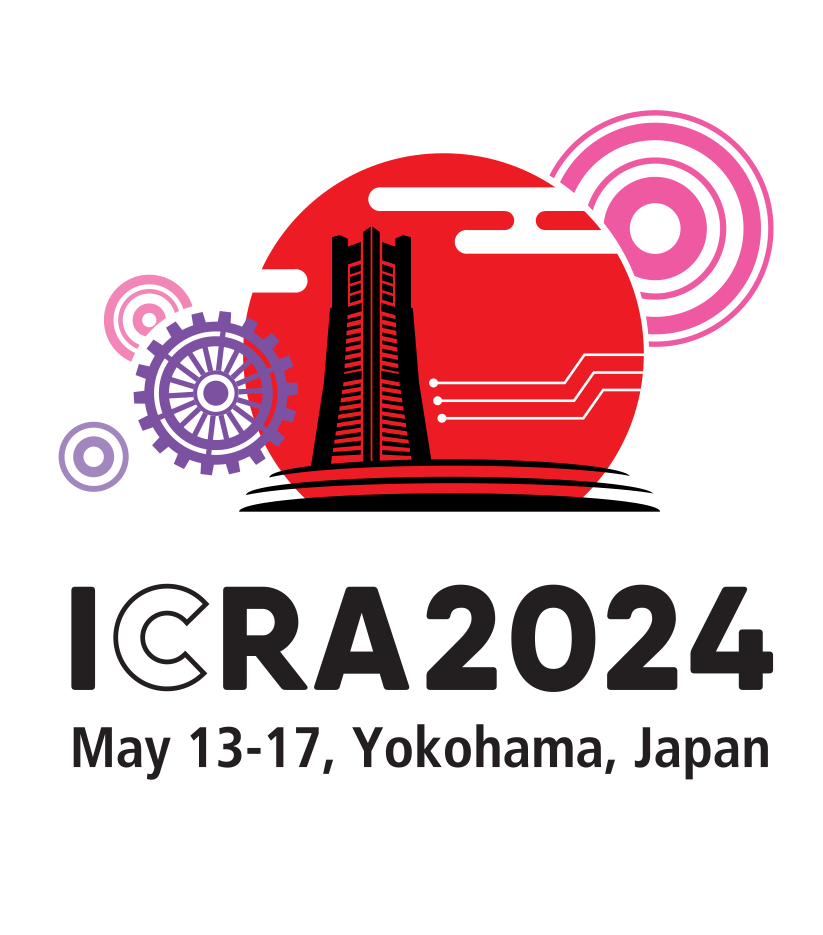Latest News
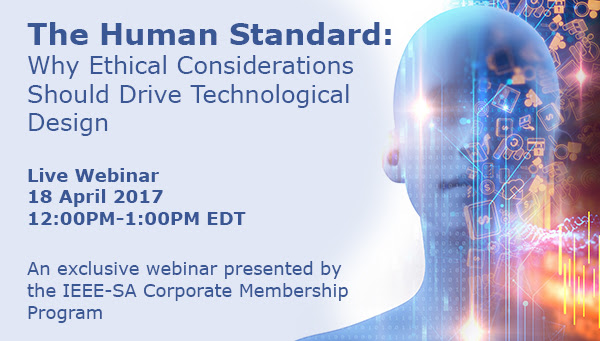
18 April 2017 at 12:00PM- 1:00PM EDT
In the age of autonomous and intelligent machines, it is more important than ever to help technologists and organizations be cognizant of the ethical implications of the products, services or systems they are building and how they are being built before making them available to the general public. While established Codes of Ethics provide instrumental guidance for employee behavior, new values-centric methodologies are needed to complement these codes to address the growing use of algorithms and personalization in the marketplace.
Key insights from the Working Group Chairs of three IEEE-SA projects will be presented. The IEEE Global Initiative provided the input and recommendations that led to the creation of Working Groups for these IEEE-SA standards projects:
IEEE P7001™: Transparency of Autonomous Systems
IEEE P7003™: Algorithmic Bias Considerations
Speakers will provide their perspectives on why it is important for business leaders to increase due diligence relative to ethical considerations for what they create. This focus is not just about avoiding unintended consequences, but also increasing innovation by better aligning with customer and end-user values.
REGISTER NOW!
RAS is pleased to arrange three networking Luncheon events for our Members attending ICRA 2017 in Singapore. Space is limited for these popular events. Don't miss the chance to attend either or both because the space has been filled. Advanced registration is required. Register Now! http://www.icra2017.org/registration-and-travel/registration
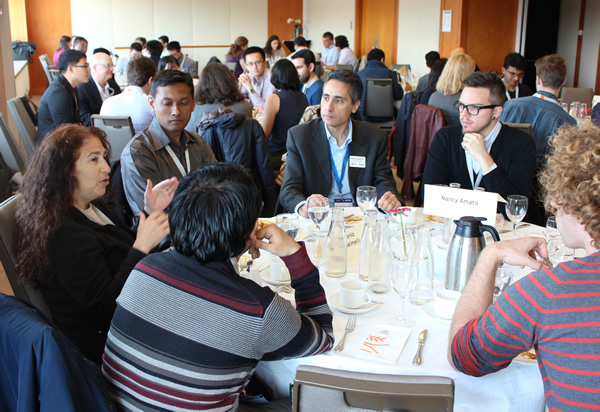
RAS Women In Engineering (WIE) Luncheon
Tuesday, 30 May 2017
12:45-13:45
Marina Bay Sands, Singapore
The luncheon provides the opportunity to foster discussion on the role of women in robotics and automation, inspire girls and promote collaborations and initiatives to advance women in leadership. As the goal for this event is to be more than a lunch for women, but a lunch with women. Therefore, men are more than welcome to participate and enjoy the discussion.
Guest Speaker: Barbara Mazzolai, Center for Micro-BioRobotics, Istituto Italiano di Tecnologia, Italy
RAS Lunch with Leaders - LwL (for Students)
Wednesday, 31 May 2017
13:30-14:30
Marina Bay Sands, Singapore
This luncheon is open to student attendees offering the chance to meet and interact with and leaders from RAS. At ICRA 2017, the format of the luncheon will be modified slightly, each table will be associated with a focus area and several discussion topics. Leaders will be paired with tables according to their interests and background.
Confirmed Leaders to include: RAS President Satoshi Takodoro, RAS Past President Raja Chatila, RAS Sr Past President David Orin, RAS President-Elect Ning Xi, Antonio Bicchi, Peter Corke, Torsten Kroeger, Ron Lumia, Raj Madhavan, Yasushi Nakauchi, Allison Okamura, Jing Xiao, Hong Zhang
Young Professionals Luncheon
Wednesday, 31 May 2017
13:30-14:30
Marina Bay Sands, Singapore
Under the umbrella of IEEE Young Professionals program, the Robotics & Automation Society (RAS) is further empowering its young professionals through the RAS Young Professionals (YP) group. This year’s event brings together representatives from the IEEE RAS Publication Activities Board and RAS Young Professionals to enjoy a meal and open discussions on important topics relating to the publications in our society, such as:
- What are the obstacles that delay the Submission to feedback-to-Authors procedure?
- What is required to extend a workshop/conference publication to a journal article?
- Open access vs traditional publications
- Why robotics journal impact factors are lower than the human science (or similar) fields?
We expect short presentations from EiCs and Editors of RAS Journals, followed by questions from the YP community.
Confirmed RAS Publication Leadership:
Eugenio Guglielmelli (Vice-President – Publication Activities)
Kyu Jin Cho (Associate Vice-President - Publication Activities)
Frank Park (IEEE Transactions on Robotics Editor-in-Chief)
Bram Vanderbrought (Robotics and Automation Magazine Editor-In-Chief)
Lorenzo Sabattini (Robotics and Automation Magazine Editor)
Yi Guo (Robotics and Automation Magazine Editor)
Hu Hesuan (Robotics and Automation Magazine Editor)
Ning Xi (Representative to the IEEE Sensors Journal)
We are pleased to invite you to attend the IEEE RAS - Summer School on Soft Manipulation
21-17 July 2017
Fraueninsel / Lake Chiemsee / Bayern, Germany
http://soma-summerschool.dlr.de/
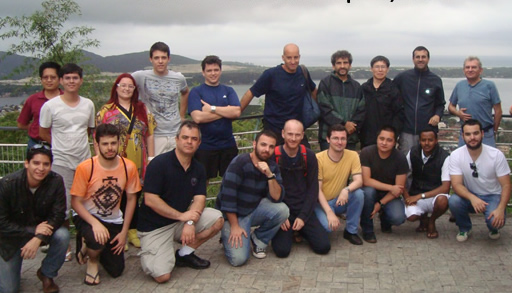
This summer school will introduce attendees to the foundations, benefits and challenges of Soft Manipulation (SoMa). It will be hosted on a picturesque island in Bavaria's largest lake, which provides a common living facility and a relaxed setting for developing different activities with the aim of maximizing conversations and interaction among the participants.
Overview
The Summer School on Soft Manipulation is a Technical Education Program (TEP) sponsored by the IEEE Robotics and Automation Society (RAS), and directly related to the project SoMa - Soft Manipulation, funded by the European Commission. Soft Manipulation is the key to developing simple, compliant, yet strong, robust, and easy-to-program manipulation systems. The Summer School on Soft Manipulation is designed to educate and foster collaboration among a new generation of researchers in an interdisciplinary fashion. It will combine plenary talks from leading academic and industrial experts of related fields: i.e. neuroscience, hand-biomechanics, and robotics with hands-on sessions. The attendees will learn about the latest findings related to hand design, control, manipulation planning, and machine learning for grasping. This knowledge will be applied and enlarged in the multidisciplinary hands-on session in which participants will get to design, build, and/or control their own soft robotic hand.
Confirmed Speakers
Antonio Bicchi
Oliver Brock
Francisco Valero-Cuevas
Domenico Prattichizzo
Fumiya Iida
Justus Piater
Markus Grebenstein
Patrick van der Smagt
Hansjurg Scherberger
Marianne Maertens
Graham Deacon
Matteo Bianchi
Moritz Bucher
Thomas Feix
Alberto Rodriguez
Maximo A. Roa
Application Process
The Summer School is designed for researchers, PhD students, and fresh postdocs interested in robotic design, control, simulation, manipulation and neuroscience. Registration is available here:
http://soma-summerschool.besl-eventservice.de/front/index.php
Participants are encouraged to apply for giving one of 3 selected talks by sending us the title and extended abstract (1 page) of the proposed talk using the login provided at registration.
Every attendee will also have the opportunity to present his/her latest research on Soft Manipulation related topics in a poster session on Monday afternoon --- use this possibility to discuss your current work and latest findings with well-known experts from robotics, neuroscience and biomechanics!
Accommodation
The Summer School will take part in a Benedictine abbey on the Fraueninsel island on lake Chiemsee, Germany https://www.frauenwoerth.de/english
This island rises up to 8 meters above sea level, and has a total surface area of 12 hectares. A walk around the island lasts about 40 min. All participants will be housed in the rooms available from the abbey, which allows for a close interaction of all participants, i.e. students as well as speakers. The summer school will be held in July, a season when weather will allow outdoor activities such as swimming, soccer, and having a beer in the beer garden.
The registration fee covers costs for accommodation, food (breakfast, lunch, dinner, coffee breaks) and workshop materials for the full duration of the summer school. Different rates are available depending on room and arrival preference, starting from $672. IEEE RAS members will receive a discount of $100. The Summer School will take place 17-21 July 2017; early arrival is possible on Sunday 16 July.
Important Dates
20 January 2017: registration opens
31 May 2017: deadline for poster and student talk application
31 May 2017: deadline for registration
30 June 2017: notification of poster / talk acceptance
For more information see: http://rmc.dlr.de/soma-summerschool/index.html
RAS will be presenting a FREE Conference Organizers Workshop during ICRA 2017. The workshop will take place on Tuesday, 30 May from 10:00-12:30 in the Roselle Room at the Marina Bay Sands in Singapore.
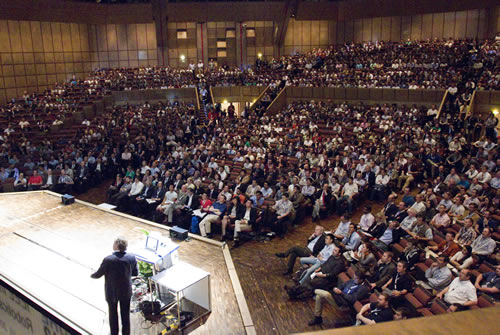
Anyone who is involved in organizing an IEEE or RAS conference, large or small, or is thinking about organizing a conference is encouraged to attend. Get answers to your questions about the organization, requirements, logistics and finances of conferences, both large and small. Speak with the experts for advice on how to make sure your conference is executed flawlessly!
PRELIMINARY AGENDA
- Welcome and Opening Remarks – Martin Buss
- Conference Committee Roles and Responsibilities – Torsten Kroeger
- Getting Started (Requesting Sponsorship & Conference Application) – Paolo Fiorini
- Event Logistics Planning and Execution – Alicia Zupeck / Torsten Kroeger
- Working with IEEE Meetings, Conferences & Events – Alicia Zupeck
- Conference Publications – Zhidong Wang
- Managing a Technical Program – Seth Hutchinson / Zhidong Wang
- Conference Finance (Budgeting through Conference Closing) – Ron Lumia
REGISTRATION
Space is limited, so we encourage you to register as soon as your availability is confirmed.
Please register for this FREE workshop online:
https://app.smartsheet.com/b/form?EQBCT=2d9e465601774246a8826c4f0a823d3c
To register by email or ask questions, please contact: RAS@ieee.org
IEEE Transactions on Automation Science and Engineering (T-ASE) announces Special Issue
Topic Based Special Issue on Advancing Intelligent Automation in Sharing Economy.pdf
Sharing economy refers to peer-based activities of obtaining, giving, or sharing the access to goods and services, coordinated through community-based online services. Sharing economy known as collaborative consumption that people sharing of services rather than having individual ownership, which can drive green consumption and sustainable development in our human society significantly.
Furthermore, sharing economy could be considered as an emerging economic-technological paradigm that is driven by developments in multiple information technologies, such as simplify sharing of both physical and nonphysical goods and services through intelligent systems. As a kind of important information technology, intelligent automation techniques have been widely applied in sharing economy (e.g., Airbnb, Uber, and Amazon Mechanical Turk), and can potentially result in great impact on citizens’ everyday life and generate huge economic benefits. For example, intelligent automation could find applicability in multiple areas and disciplines in sharing economy, including (but not limited to)
(1) Optimization in home automation, intelligent and controllable Internet of Things-enabled systems (i.e., networks of robots integrated with distributed environmental sensors), which can optimize the deployment of resources that would be shared and accessed for the benefit of involved communities;
(2) Automatic matching in ridesharing, e.g., cloud-based big data analytics and automatic coordination/matching mechanisms which can be applied to a large pool of drivers and passengers, and enable them simultaneously diminish cost in similar destinations and overlapping journeys; and
(3) Improving crowdsourcing systems, such as intelligent filtering of participants, autonomous grouping of temporary workers, automatic controlling schemes of workflow, and intelligent algorithms aggregate the contributions from individuals automatically, which can improve efficiency, effectiveness, and intelligence in crowdsourcing systems. Accountable autonomous operation, human centered automation, cloud robots, security and privacy, and other methodologies, innovations, and technologies which can facilitate intelligent automation in sharing economy are also welcome. The main objective of this special issue aims to involve multidisciplinary research contributions on the state of the art of intelligent automation and its potential applications in sharing economy.
Topics explored in this special issue include, but are not limited to:
- Cloud-based robots and intelligent systems for sharing economy
- Human centered automation for optimization of resource deployment in sharing economy
- Human computer interface for home automation & intelligent devices in sharing economy
- Innovative computer software and hardware architecture for big data processing in sharing economy
- Real-time big data analytics for automatic matching in sharing economy
- Distributed sensing and heterogeneous big data integration in sharing economy
- Semantic techniques in intelligent automation for sharing economy
- Process modeling, analysis, mining and optimization in intelligent automation for sharing economy
- Theoretical foundations of filtering/controlling/managing crowdsourcing systems
- Evaluations and solutions for security, privacy, and reliability issues of big data in sharing economy
- Case study on real-world intelligent automation applications for sharing economy
- Social and economic impacts of intelligent automation applications in sharing economy
Important Dates
15 October 2017: paper submission deadline.
15 January 2018: completion of the first round review.
15 April 2018: completion of the second round review.
15 June 2018: final manuscripts due.
1 October 2018: tentative publication date.
Paper Submission
All papers are to be submitted through the IEEE’s Manuscript Central for the IEEE Transactions on Automation Science and Engineering http://mc.manuscriptcentral.com/t-ase.
Please select “Special Issue” under Manuscript Category of your submission. All manuscripts must be prepared according to the IEEE Transactions on Automation Science and Engineering publication guidelines
http://www.engr.uconn.edu/~ieeetase/.
Please address inquiries to xp.hu@siat.ac.cn
Guest Editors:
Dr. Xiping Hu - Shenzhen Institutes of Advanced Technology, Chinese Academy of Sciences, China xp.hu@siat.ac.cn
Dr. Xitong Li - HEC Paris, France lix@hec.fr
Dr. Wei Tan - IBM Thomas J. Watson Research Center, USA wtan@us.ibm.com
Dr. Jun Cheng - Shenzhen Institutes of Advanced Technology, Chinese Academy of Sciences, China jun.cheng@siat.ac.cn
Dr. Mengchu Zhou - New Jersey Institute of Technology, USA zhou@njit.edu
Dr. Ricky Kwok - The University of Hong Kong, Hong Kong Ricky.Kwok@hku.hk
You are invited to submit relevant manuscripts for a special issue on “Human Cooperative Wearable Robotic Systems” in IEEE Robotics and Automation Letters (RA-L).
INTRODUCTION
Intelligent techniques foster the dissemination of new discoveries and novel technologies that advance the ability of robotics to assist and support humans. Intelligent robots aim to understand the increasingly coupled relationships between human and machine. With the increasing trend towards home service and health care, we are faced with a need for improved control systems of human-centered assistive and rehabilitation robots capable of performing in the unstructured environments. Although big progress has been made in the recent years, there are still open issues due to the limitation in technology, but also the insufficient knowledge about the human.
The special issue addresses a broad spectrum of topics within wearable robotics. Special attention should be given to the integration of robotics with intelligent control technology, cognitive science and bio-mechatronics systems with the goal of developing new multi-dimensional robotic services. This includes mechanism modeling and design, model identification and intelligent control, cognitive computing, biological signal processing, neural impedance adaptation, tele-operation and tele-manipulation, robot learning from human demonstration and cognitive modeling for human-robot interaction or collaboration. The special issue publishes original papers of innovative ideas and concepts, new discoveries and improvements, and novel applications and business models relevant to the field of human robot interaction.
RELEVENT TOPICS
- Design, modeling and control of wearable robots and exoskeletons
- Novel development of human-in-loop cooperative robotic/mechatronics systems and applications
- Impedance control and shared control for human robot cooperation
- Intelligent control of prosthetic robots for the disabled
- Biological signal processing, modeling and control
- Development of bio-mechatronic systems for human-centered intelligent robots
- Robotic tele-operation and tele-manipulation
- Neuro-robotics for innovative computation and control
- Human motion understanding, intention estimation and sensorimotor learning
IMPORTANT DATES
Special Issue Call Publication: 20 March 2017
Special Issue Submission Opens: 10 May 2017
Special Issue Submission Closes: 15 May 2017
First Decision Communicated to Authors: 9 August 2017
Final Decision Communicated to Authors: 13 October 2017
Accepted RAL Papers appear on Xplore: November 2017
Additional details are here: http://www.ieee-ras.org/publications/ra-l/special-issues/human-cooperative-wearable-robotic-systems
THE SPECIAL ISSUE IS SUPPORTED BY
IEEE RAS Technical Committee on Telerobotics
IEEE SMC Technical Committee on Bio-mechatronics and Bio-robotics Systems
The 10th International Workshops on Human-Friendly Robotics 2017
2017 IEEE International Conference on Advanced Robotics and Mechatronics (ICARM'17) (http://www.ieee-arm.org/). Authors of papers accepted for this special issue will also be offered the possibility to present their results at ICARM'17 in a dedicated Special Session.
The 2017 IEEE International Conference on Robotics and Automation (ICRA) will be held from 29 May 29-3 June 2017 at Sands Expo and Convention Centre, Marina Bay Sands in Singapore. ICRA is IEEE Robotics and Automation Society's flagship conference and is a premier international forum for robotics researchers to present their work.
Robotics Innovation & Entrepreneurship Forum (RIE)
ICRA 2017 will introduce a new Robotics Innovation & Entrepreneurship (RIE) Forum that aims to bridge technological advances with real-world problems. The forum will connect promising start-ups with industry leaders in key application domains.
The RIE Forum will be held on 30-31 May 2017 and features six industry focus areas.
For more information see: http://www.icra2017.org/conference/forums/rie-forum
Start-up Corner

ICRA 2017 welcomes start-up companies to market their products and services to a highly relevant audience of robotics and automation researchers, developers and industry leaders. Start-ups will have the opportunity to showcase and demonstrate their products in a highly interactive environment within the exhibition area at ICRA 2017.
In addition, selected start-ups can pitch their innovations at the Robotics Innovation & Entrepreneurship (RIE) Forum in one of the six industry focus areas, namely, Autonomous Driving, Service, Healthcare, Logistics, Education & Social, and Collaborative Manufacturing.
Please contact ICRA 2017 Secretariat at sales@icra2017.org or call +65 6389 6626 to secure your space at the ICRA 2017 Start-up Corner.
For more information see: http://www.icra2017.org/sponsors-and-exhibitors/start-up-corner
Each year, the IEEE Robotics & Automation Society offers financial support for three Technical Education Programs (RAS-TEP), also known as "summer schools." In efforts to bring RAS closer to its membership, these programs rotate though the Americas, Europe and Asia and Pacific.
The RAS-TEP program is jointly run by the RAS Member Activities Board (MAB) and the RAS Technical Activities Board (TAB). The program is intended to sponsor or co-sponsor up to three summer schools per year around the world. One of the three summer schools will be fully sponsored by RAS to a level of $40,000, and it will rotate annually through RAS' three geographical regions in a round robin fashion. The other two summer schools will be cosponsored with interested organizations in the other two geographical regions up to a level of $20,000 each. In 2018, full sponsorship ($40,000) is available for Geographical Area 2 (Europe, Middle east, Africa). The other two summer schools will be cosponsored with interested organizations in the remaining two geographical regions up to a level of $20,000 each.
The review of summer school proposals is based on assessments from two different viewpoints, the first one with respect to the general structure, including organizational matters and budget, and the second one with respect to the technical content. Suited Technical Committees (TCs) of the RAS have to endorse the proposal. Current TCs are listed at: www.ieee-ras.org/technical-committees.
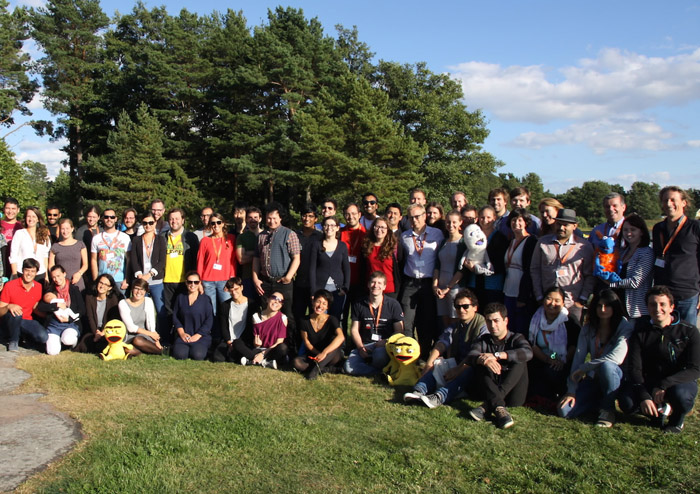
Technical Education Program Proposal - online proposal form
IMPORTANT DATES
Deadlines for the submission of 2018 proposals: 1 May 2017
Decision: ICRA 2017
Notification: July 2017
The IEEE Robotics and Automation Society membership will elect six new members of the Administrative Committee in 2017, each to serve a three-year term beginning 1 January 2018. The AdCom is the governing body of the Society.

RESPONSIBILITIES OF ADCOM MEMBERS
AdCom members must attend two formal meetings each year, one in conjunction with ICRA and the other usually in October/November in conjunction with another major conference. Each AdCom member is expected to serve on at least two boards and/or committees of the Society.
ELIGIBILITY
Any higher-grade member of the Society is eligible to serve and all higher-grade members plus graduate students may nominate candidates and vote.
TO NOMINATE A CANDIDATE
To nominate a candidate or offer yourself as a candidate, contact the Society at ras@ieee.org by 1 May 2017.
PETITION CANDIDATES
Candidates may also petition to be on the ballot. All persons who, by the deadline, submit petitions with valid signatures and IEEE member numbers with at least 2% of the year-end voting membership will be placed on the ballot. Only original signatures on paper or electronic signatures submitted through the RAS petition website will be accepted. Faxed or emailed signatures are NOT acceptable. Contact the Society at ras@ieee.org to obtain a paper petition form or to set up an electronic petition.
Completed petitions must be received by 1 May 2017 to be placed on the ballot.
SELECTION OF FINAL BALLOT
The Nominations Committee will consider all nominations and petitions and select the candidates to be placed on the ballot.
ESSENTIAL INGREDIENTS OF BUILDING A SUCCESSFUL ROBOTIC STARTUP
IEEE RAS Startup Boot Camp
Organised Jointly with Xbot Park at the Hollywood of Makers, Dongguan, China
Call for Applications (limited to 20 seats only).
The IEEE Robotics & Automation Society is organizing a special boot camp for robotics researchers/engineers who are planning to create a robotic startup company. The event will be held in Songshan Lake, Dongguan, China (near to Shenzhen/Guangzhou/Hong Kong airport). Prof. Zexiang Li, co-founder of Dji and many other robotic companies, will talk about the essential ingredients of building a successful robotic startup. The boot camp program includes talks, visits to Dji and other robotics companies, the supply chain for robotic companies, and interactions with in-house robotic startups.
Events
- Company visit
- Supply chain exploration
- Keynotes: Prof Zexiang Li, Dr Yanliang Zhang...
Important Dates
- Registration Deadline: 31 March 2017
- Acceptance Notification: 15 April 2017
- Bootcamp: 4-11 June 2017, just after ICRA
Applications/Registration
Please send your CV to Zhang.YL@xbotpark.com and StartX@xbotpark.com before March 31, 2017.
For additional information, program and logistics, please see: http://www.xbotpark.com/activities/2017RSBC.htm
ICRA 2017 - Innovation, Entrepreneurship, and Real-world Solutions
The 2017 IEEE International Conference on Robotics and Automation (ICRA) will be held 29 May - 3 June 2017 at Sands Expo and Convention Centre, Marina Bay Sands in Singapore. ICRA is IEEE Robotics and Automation Society's flagship conference and is a premier international forum for robotics researchers to present their work.
It is timely that Singapore is hosting ICRA in 2017, as the country strives to be a Smart Nation, one where people are empowered by technology to lead meaningful and fulfilled lives, and to support better living, stronger communities, and create more opportunities for all.
The conference theme, "Innovation, Entrepreneurship, and Real-world Solutions", underscores the need for innovative R&D talent, dynamic and goal-driven entrepreneurs and practitioners using robotics and automation technology to solve challenging real-world problems such as shortage of labour, an ageing society, and creating sustainable environments.
ICRA 2017 will introduce a new Robotics Innovation & Entrepreneurship Forum, alongside an industrial forum, a government forum, an ASEAN & emerging country forum, and a public forum (ICRA-X) centred on the conference theme, in addition to plenary and keynote sessions, technical paper sessions, workshop and tutorial sessions, exhibitions, and robot challenges. We welcome researchers, engineers, students, industry, investors and people from all walks of life interested in robotics and automation to participate in this gala robotics event!
Call for Late Breaking Results
At ICRA 2017, there will be a Late Breaking Results Poster Session where researchers have the opportunity to present recent results in robotics and automation. Posters in the Late Breaking Results session are not peer-reviewed and do not count as publications. Indeed, this session is ideal for researchers to get feedback on their work prior to submitting it for formal publication. See: http://www.icra2017.org/contribute/call-late-breaking-results?utm_source=robotics-worldwide&utm_medium=mailing_list
Prospective poster presenters should submit a 1-page extended abstract by 10 March 2017 through the PaperPlaza system here:
http://ras.papercept.net/conferences/scripts/start.pl
Decisions will be made as soon as possible after the abstract is submitted, but no later than 24 March 2017. Final abstracts for accepted posters will be due by 7 April 2017. At least one of the authors of each accepted poster is expected to be present at the poster during the entire poster session.
Poster abstracts are not peer-reviewed and are not publications. As such, they will not be included in the conference proceedings and IEEE Xplore. The abstract will be available to the conference attendees in electronic form. The Late Breaking Results Poster Session will be a great avenue to share your latest work and we strongly encourage you to submit your interesting new work for this session.
Important Dates
10 March 2017: Deadline for submission of 1-page extended abstract
24 March 2017: Notification of acceptance
7 April 2017: Submission of final abstract and registration
Abstract Guidelines
Language: English.
Paper size: US Letter.
Paper format: Two-column format, 1 page.
File format: PDF (Please limit the size of the PDF file to 2 MB)
For more updates and information, please see: http://www.icra2017.org/contribute/call-late-breaking-results
The IROS 2017 Autonomous Drone Racing in Mos Eisley Vancouver Arena (Racing) is a technical challenge sponsored by the IEEE/RSJ International Conference on Intelligent Robots and Systems (IROS 2017) Organizing Committee aimed to provide worldwide robotic researchers a technology showroom for autonomous flight and to promote solutions for the agile autonomous flight of drones in daring environments. Participants will bring their own flying robots in Mos Eisley Vancouver Arena and be asked to fly them autonomously through designated tracks in the circuit. The technical challenges combine the time optimal path planning for drones, flight and tracking control, obstacle detection, localization, and fault detection and recovery. Two racing times will be recorded and scored by its best flight time through the start and the finish line. More detail rules of Racing can be found in the competition web pages.
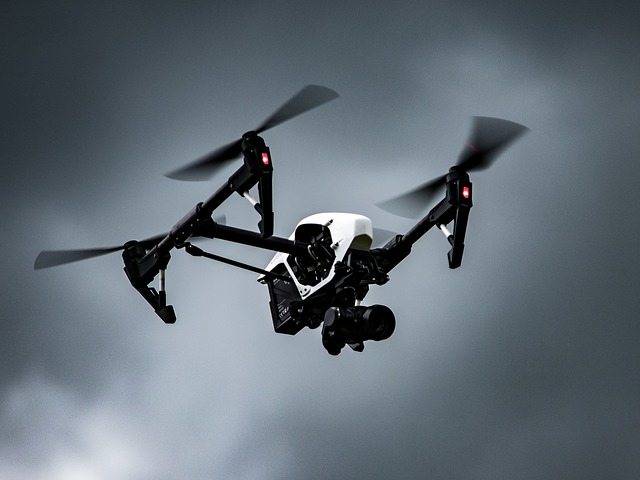
APPLICATION INSTRUCTIONS AND DEADLINES
We are now accepting applications worldwide, and warmly welcome teams to participate in this competition! Prospective participants must submit the registration form (Form A, available online) via email to drone.racing.iros2017@gmail.com with the title of "Drone Racing Registration: Your team name" by 1 April 2017. Although we have not finalized the size of the grant, registered teams may be eligible for the travel grant if submitted the travel grant application form (Form B, available online) by 1 June 2017 to drone.racing.iros2017@gmail.com with the title of "Drone Racing Travel Grant Application: Your team name". Successfully registered teams must submit promotion materials to the organizers via email by 1 September 2017. The conference registration policy for the competition-only participants will be announced later.
For more detailed information see the IROS 2017 ADR competition website at http://ris.skku.edu/iros2017racing/
Since it was first recognized as a field in the 20th century, the science of robotics has contributed to significant productivity and efficiency gains across a variety of industries. In the 21st century, robotics and automation (R&A) technologies have evolved to be a vital part of the technology for development (tech4dev) ecosystem improving the quality of lives in underserved and underrepresented communities worldwide. In this webinar, Raj Madhavan, SIGHT Chair of the IEEE Robotics & Automation Society, will explain how to separate alarmist opinions reported by the media and perceptions created by Hollywood movies from the real impact on communities by providing an objective and unskewed view of R&A in global development.
Join this webinar to:
- Learn about R&A in global development through recent case studies
- Understand the role of technology and public policy issues in bridging the gap between what is possible from an engineering/scientific viewpoint and what the expectations of the general public
- See some examples of efforts in bringing together researchers, academia, industry, and government to address the challenges in development and deployment of R&A solutions
Speaker: Raj Madhavan
Date: 28 February 2017
Time: 11:00 AM EST (convert to your time)
IEEE Fellow is a distinction reserved for select IEEE members. The honor is conferred by the Board of Directors upon a person with an extraordinary record of accomplishments in any of the IEEE fields of interest.
If you know of an IEEE colleague who is a Senior Member or Life Senior Member in good standing, has completed five years of service in any grade of IEEE Membership and who has made an outstanding contribution to the electronic or electrical engineering profession, you can nominate this person in one of four categories:
- Application Engineer/Practitioner
- Educator
- Research Engineer/Scientist
- Technical Leader
 Nominations for the Fellow Class of 2017 are now being accepted. To learn more about the Fellow program and the nomination process, visit the About the IEEE Fellow Program page.
Nominations for the Fellow Class of 2017 are now being accepted. To learn more about the Fellow program and the nomination process, visit the About the IEEE Fellow Program page.
NOMINATION DEADLINE: 1 March 2017
Additional information about the IEEE Fellow program, and a list of RAS Fellows is available HERE.
Aerial robotics has been one of the most active areas of research within the robotics community, and recently there has been a surge of interest in aerial swarm systems. This IEEE Transactions on Robotics special issue reflects on advances in aerial robotics and unmanned aerial vehicles, and aims to put together a cohesive set of research goals and visions towards realizing fully autonomous aerial swarm systems. In the near future, our airspace will be shared by a large number of aerial robots and autonomous aircraft, performing complex tasks that would be not possible for a single ground robot. A number of technological gaps need to be bridged in order to achieve full autonomy and reliable and safe operation of swarms of aerial robots. The papers selected for this special issue will represent the most promising ideas to address such research issues in modeling, design, control, sensing, planning, and computation of aerial swarms, with an emphasis on enhanced scalability, adaptability, robustness, and autonomy.
Contributions must have a direct connection to the central themes of the special issue: swarms of aerial robots flying in a three-dimensional (3-D) world. Each contribution should emphasize how to address challenges in transitioning from 2-D to 3-D in areas such as SWaP (size, weight, and power), swarm coordination or collaboration, and use of 3-D vehicle dynamics.
TOPICS OF INTEREST
* Aerial swarming: modeling, design, and control
* Motion planning, guidance, and control of distributed aerial systems
* Algorithmic innovation enabling control of large-scale swarms of aerial robots
* Novel system-level or hardware design concepts for aerial swarms
* Distributed sensing or estimation techniques leveraging aerial swarm platforms
* Real-world results and lessons learned from testing state-of-the-art techniques
* Real-time optimal control, planning, and decision making for aerial swarms
* Scalability, stability, and robustness issues in distributed aerial systems
* Planning and control using vision-based sensing
* Traffic control of swarms of drones in indoor or outdoor environments
* Human-swarm interaction
* Long-term autonomy of aerial swarms
* Research issues in large-scale deployment of aerial swarms
* Enabling applications using aerial swarms
* Verification and validation of multi-agent systems and algorithms
* Decentralized planning and its applications to aerial swarms
Interested authors are encouraged to contact the special issue editors with an abstract of their paper to confirm that their submission is within the scope of the special issue.
Abstracts should be sent via email to sjchung@caltech.edu, vijay.kumar@seas.upenn.edu, a.paranjape@imperial.ac.uk, pdames@temple.edu, and eeshaojie@ust.hk.
IMPORTANT DATES
Call for Papers: 24 February 2017
Deadline for Initial Paper Submission: 31 May 2017
Notification of First Round Decision: 1 September 2017
Deadline for Revised Paper Submission: 1 October 2017
Target Publication Date: February 2018
GUEST EDITORS
Prof. Soon-Jo Chung, Caltech and Jet Propulsion Laboratory, Pasadena, CA
Prof. Vijay Kumar, University of Pennsylvania, Philadelphia, PA
Dr. Aditya Paranjape, Imperial College London, London, UK
Prof. Philip Dames, Temple University, Philadelphia, PA
Prof. Shaojie Shen, Hong Kong University of Science and Technology, Hong Kong
ICRA 2017 welcomes start-up companies to market their products and services to a highly relevant audience of robotics and automation researchers, developers and industry leaders. Start-ups will have the opportunity to showcase and demonstrate their products in a highly interactive environment within the exhibition area at ICRA 2017.
In addition, selected start-ups can pitch their innovations at the Robotics Innovation & Entrepreneurship (RIE) Forum in one of the six industry focus areas, namely, Autonomous Driving, Service, Healthcare, Logistics, Education & Social, and Collaborative Manufacturing.
Please contact ICRA 2017 Secretariat at sales@icra2017.org or call +65 6389 6626 to secure your space at the ICRA 2017 Start-up Corner.
The 2017 IEEE International Conference on Robotics and Automation (ICRA) will be held from 29 May - 3 June 2017 at Sands Expo and Convention Centre, Marina Bay Sands in Singapore. ICRA is IEEE Robotics and Automation Society's flagship conference and is a premier international forum for robotics researchers to present their work.
Regular/special session submissions Deadline has been extended to 15 March 2017!!! There will not be any further extensions. The list of special sessions is available at http://case2017.org/submission/special_sessions.html

The 13th IEEE International Conference on Automation Science and Engineering (IEEE CASE 2017), sponsored by the IEEE Robotics and Automation Society (RAS), will be held in Xi'an, China, 20-23 August 2017. IEEE CASE is a flagship automation conference of the IEEE RAS and constitutes the primary forum for cross-industry and multi-disciplinary research in automation. Its goal is to provide a broad coverage and dissemination of foundational research in automation among researchers, academics, and practitioners.
The technical program of IEEE CASE 2017 will consist of tutorials/workshops, keynote/plenary speeches, automation forums, and oral presentations. Papers describing original work on abstractions, algorithms, theories, methodologies, and case studies are invited. There is a track on International Symposium on Assembly and Manufacturing (ISAM). Accepted and presented papers will be published in the conference proceedings, and submitted for inclusion into IEEEXplore as well as other Abstracting and Indexing(A&I) databases. IEEE CASE is an offspring of the journal IEEE Transactions on Automation Science and Engineering. The journal will publish a Special CASE Issue of top-rated papers.
Regular papers and special session papers should be submitted online at https://ras.papercept.net . One new feature of CASE 2017 is that the authors of the papers published or accepted in and after 2016 by IEEE Transactions on Automation Science and Engineering or IEEE Transactions on Robotics can request presentation of their papers at the conference in the newly organized "transaction paper sessions".
General inquiries should be addressed via Email to the Program Chair, Prof. (Samuel) Qing-Shan JIA at
jiaqs@mail.tsinghua.edu.cn. The best conference paper award, the best application paper award, and the best student paper award will be selected.
2017 IEEE/RSJ International Conference on Intelligent Robots and Systems
24-28 September 2017, Vancouver, British Columbia, Canada
You are cordially invited to submit your original papers to IROS 2017, to be held 24-28 September 2017 at Vancouver Convention Centre (VCC), in Vancouver, Canada. In its 5-day program, IROS 2017 will include workshops, tutorials, industrial exhibits, competitions, social/technical tours, as well as the customary oral sessions. To enrich its technical program, ROSCon 2017 will be collocated at VCC and held prior to IROS 2017.
Under the theme of "Friendly People, Friendly Robots", IROS 2017 particularly welcomes papers that address technological challenges and significant research opportunities in developing friendly robots that can work effectively with, for, and around people. As always, we also invite papers in all areas of intelligent robots and systems, their components, and applications. For submission as well as general conference information including calls for exhibits, competitions, workshops/tutorials, please visit the conference website at: http://iros2017.org/
IMPORTANT DATES
20 January 2017 - Competition proposals
3 February 2017 - Notification of competition acceptance
15 February 2017 - RA-Letters with IROS option submission
1 March 2017 - Full paper submission
15 March 2017 - Workshop/tutorial proposals submission deadline
22 April 2017 - Notification of workshop/tutorial acceptance
15 June 2017 - Notification of paper acceptance
22 July 2017 - Final paper submission
24-28 September 2017 - IROS 2017 in Vancouver
RAS-SIGHT is the first IEEE Society to have a SIGHT! The mission of RAS-SIGHT is the application of robotics and automation technologies for promoting humanitarian causes around the globe, and to leverage existing and emerging technologies for the benefit of humanity in under-served, under-developed areas in collaboration with existing global communities and organizations.
RAS-SIGHT's activities broadly fall under Challenges and Projects. While Challenges are intended to advance the state-of-the-art in robotics and automation and provide a platform for researchers and developers to participate in a group setting working towards addressing problems with a humanitarian slant, Projects facilitate communities and associated organizations to work closely with robotics and automation researchers to elevate the quality of life for the residents of communities across the globe. RAS-SIGHT envisions Humanitarian Robotics and Automation Technology Challenges (HRATCs) as an unprecedented opportunity for technologists from around the world to collaborate using their skills and education to benefit humanity. The problems (challenges) are framed with the environmental, cultural, structural, political, socio-economic, and resource constraints so that solutions can be developed, deployed, and sustained.
In this vein, RAS-SIGHT is soliciting proposals that when implemented would improve the quality of life for the beneficiaries. Some important points worth noting:
- The problem that you propose to solve should utilize robotics and/or automation technologies
- It is strongly encouraged that the solution be developed and deployed with active involvement from the community or the end-users that it is intended to benefit
- Sustainability beyond the completion of the project will be a key consideration
- the problem
- the solution,
- related work, similar initiatives, and how the proposed project will achieve new results than what is currently available,
- proposed partnerships with existing initiatives,
- number of people who would be impacted,
- previous experiences, both in terms of applied research and deployment,
- project development timeline,
- breakdown of anticipated costs, and how the funds would be used to support the project, and
- short biographies of project members (with URLs of respective websites)
Important Dates
27 February 2017- Deadline
10 March 2017- Acceptance Notification
*We anticipate to fund 6-8 proposals in the US$2500-$5000 range from all Regions of IEEE. Please note that the awarded funds cannot be used to support wages or salaries of personnel or for supporting theoretical research.*
*All submissions should be sent to Raj Madhavan, Chair, RAS-SIGHT at <raj.madhavan@ieee.org>*
Useful URLs
RAS-SIGHT | RAS-SIGHT Publications | IEEE Conference Template |
"Implementing Robotics and Automation Technology for Social Impact: RAS-SIGHT,” IEEE TA Society Sentinel Article on RAS-SIGHT
Converging approaches adopted by engineers, computer scientists and software developers have brought together niche skillsets in robotics for the purposes of a complete product, prototype or application. Some robotics developments have been met with criticism, especially those of an anthropomorphic nature or in a collaborative task with humans. Due to the emerging role of robotics in our society and economy, there is an increasing need to engage social scientists and more broadly humanities scholars in the field. In this manner, we can furthermore ensure that robots are developed and implemented considering the socio-ethical implications that they raise.
This call for papers supposes that more recently, projects have brought on board personnel with a multidisciplinary background to ask those all-important questions about “what if” or “what might be” at a time that the initial idea generation is occurring to achieve a human-centered design. The ability to draw these approaches into the “design” process, means that areas of concern to the general public are addressed. These might include issues surrounding consumer privacy, citizen security, individual trust, acceptance, control, safety, fear of job loss and more.
In introducing participatory practices into the design process, preliminary results can be reached to inform the developers of the way in which they should consider a particular course of action. This is not to halt the freedom of the designer, but rather to consider the value-laden responsibility that designers have in creating things for the good of humankind, independent of their application.
This call seeks to include novel research results demonstrated on working systems that incorporate in a multidisciplinary approach technological solutions which respond to socio-ethical issues. Ideally this IEEE Robotics & Automation Magazine (RAM) paper is complemented by a paper submitted in parallel to IEEE Technology and Society Magazine (T&SM ) that investigates the application from a socio-ethical viewpoint.
Important Deadlines
01 May 2017- Paper Submission Deadline:
10 July 2017- First Decision
15 September 2017- Revised Paper Submission
20 November 2017- Final Decision
March 2017- Publication
Guest Editors
Noel Sharkey (University of Sheffield)
Aimee van Wynsberghe (University of Twente)
John C. Havens (The Global Initiative for Ethical Considerations in the Design of Autonomous Systems)
Katina Michael (University of Wollongong)
For more information, go to CFP: Socio-ethical Approaches to Robotics Development



